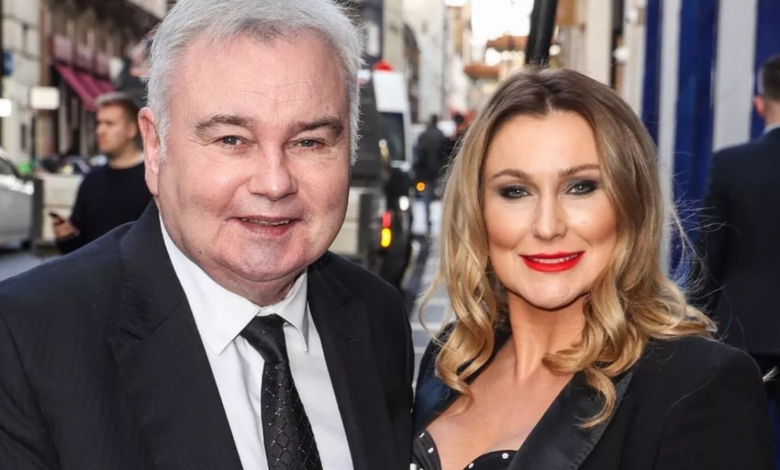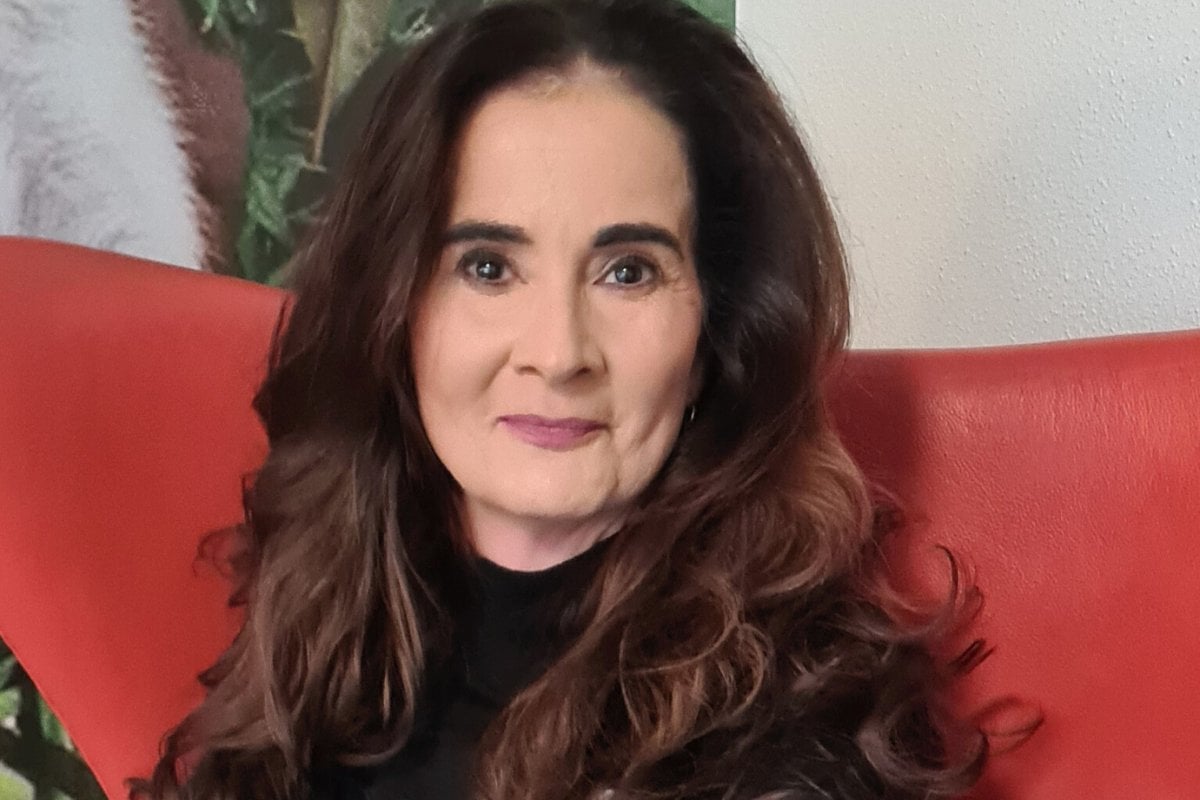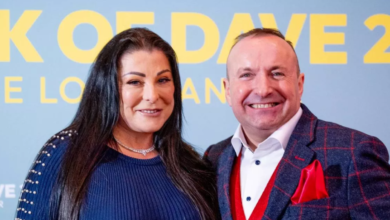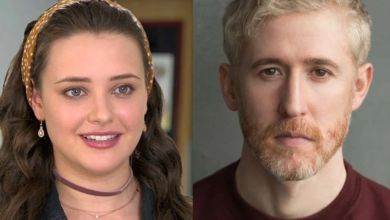Katie Alexander: The Story Behind the Name Everyone’s Talking About

Discover everything about Katie Alexander—a name making waves across media, education, and lifestyle. Dive into her background, career, and rising influence in this comprehensive guide.
Who is Katie Alexander?
Katie Alexander is more than just a name circulating online or trending on social platforms. She’s a woman of many talents, someone who embodies creativity, resilience, and a sense of purpose. Whether you first encountered her name in the world of journalism, education, or lifestyle content, one thing is clear: Katie Alexander is leaving an impact wherever she goes.
There’s a certain charm to Katie Alexander that makes people curious. It could be her authentic voice, her work ethic, or the way she connects with audiences across different platforms. People don’t just want to know what Katie Alexander does, but who she really is. This article aims to explore that, diving into her background, career, and the reasons why she continues to captivate attention.
The Early Life of Katie Alexander
Every story has a beginning, and for Katie Alexander, those roots are grounded in humility and ambition. Growing up, she showed signs of curiosity and an eagerness to learn that set her apart. Whether she was participating in school plays, writing for the student newsletter, or volunteering in community programs, Katie had a knack for engaging with people.
Her family and close circle often describe her as observant and empathetic. These early traits would later shape her professional path, where communication and people skills are central. Katie didn’t come from a background steeped in fame or media exposure, but that makes her journey all the more inspiring. Her success is the result of consistent effort, curiosity, and a deep sense of purpose.
Katie Alexander also developed a love for storytelling at a young age. She would often journal her thoughts, write poems, or contribute articles to local publications. That early exposure to expressing herself through words helped solidify a foundation that she would later build into a career.
Katie Alexander in Journalism
Katie Alexander’s name began to resonate with broader audiences through her work in journalism. She brought a refreshing energy to the newsroom and quickly carved out a niche for herself. Journalism is not just about reporting facts; it’s about telling stories that matter. Katie understood this better than most.
Her approach to journalism was grounded in authenticity and empathy. Whether covering hard news or human interest stories, Katie had a way of making the subject relatable. She believed in giving a voice to the unheard and shedding light on underreported topics. Her work resonated because it was honest and often emotionally charged without losing objectivity.
She didn’t chase sensationalism. Instead, she focused on facts, context, and human impact. Viewers appreciated her clarity, her poise on camera, and her commitment to journalistic integrity. Katie Alexander became a trusted name, and that trust has only grown stronger with time.
A Passion for Education and Community
Beyond journalism, Katie Alexander has also shown a deep interest in education and community outreach. She frequently collaborates with local schools, non-profits, and youth organizations. Her passion for education is rooted in the belief that access to information and opportunities can transform lives.
She’s not just someone who talks about change; she actively participates in making it happen. Whether she’s mentoring young journalists, speaking at career days, or helping fund local education initiatives, Katie always puts her values into action. Her influence in this space is growing, and many young people credit her as a role model.
Katie believes that education is a lifelong journey. She often speaks about the importance of staying curious and never stopping the learning process. Her enthusiasm for continuous growth has inspired many to take their own development more seriously.
The Lifestyle Side of Katie Alexander
There’s another side to Katie Alexander that fans love—her authentic lifestyle content. From travel vlogs to wellness tips, Katie shares parts of her personal life that resonate with many. She doesn’t try to portray a perfect life. Instead, she talks about balance, burnout, joy, and the messiness of everyday life.
What sets her apart in the lifestyle space is her genuine approach. She’s not selling a fantasy; she’s inviting people into her world. Her followers appreciate how down-to-earth she is. Whether she’s showing her favorite books, her go-to skincare routine, or just a slice-of-life vlog, it feels like you’re hearing from a friend.
She’s also used her platform to advocate for mental health and self-care. Katie often shares her own experiences with anxiety and stress, helping to destigmatize these conversations. It’s not just about aesthetics—her content adds value and insight, making her a reliable voice in a crowded digital space.
Building a Personal Brand
Katie Alexander didn’t become a well-known name by accident. She’s been intentional about building a personal brand that reflects her values. From the way she communicates to the platforms she chooses, every detail feels authentic. That consistency has earned her both credibility and admiration.
She understands the power of branding, not just as a buzzword but as a way of creating meaningful connections. Katie’s brand is built on trust, transparency, and storytelling. She doesn’t shy away from showing her struggles or celebrating small wins. That openness makes people feel seen, which is powerful in today’s digital age.
In an era where influencers come and go, Katie Alexander has built something sustainable. Her personal brand isn’t reliant on viral trends or gimmicks. Instead, it’s anchored in realness, which is something more and more people are craving.
Online Presence and Social Media Influence
Katie Alexander knows how to navigate the digital landscape. She uses platforms like Instagram, X (formerly Twitter), YouTube, and even TikTok, but she does so with intention. Her content isn’t overwhelming or performative—it’s balanced, thoughtful, and engaging.
She often uses her platforms to start meaningful conversations. From current events to book recommendations, there’s always something of substance in her content. She’s not afraid to ask questions, admit when she’s wrong, or share new insights. That humility has earned her a loyal following across age groups.
What’s especially notable is how Katie engages with her audience. She replies to comments, hosts live Q&A sessions, and encourages dialogue. Her fans feel like they’re part of a community, not just an audience. That kind of interaction builds lasting relationships online.
Katie Alexander’s Voice on Important Issues
Katie Alexander has never been one to stay silent on matters that count. Whether it’s social justice, climate change, or media literacy, she brings a nuanced, informed voice to the table. Her ability to articulate complex issues in an accessible way makes her a valuable voice in public discourse.
She uses her platform to raise awareness, promote education, and encourage civic engagement. Katie doesn’t just post hashtags—she follows up with resources, actionable steps, and thoughtful commentary. Her fans trust her not just to inform but to empower.
That level of responsibility is something she takes seriously. Katie understands that with visibility comes influence, and with influence comes a duty to be thoughtful, respectful, and grounded. She uses her reach for good, and that’s increasingly rare.
Collaborations and Media Features
Katie Alexander’s credibility has led to a number of exciting collaborations. She’s been featured in media outlets, invited to panels, and collaborated with brands that align with her values. These aren’t just PR stunts; they’re partnerships that reflect who she is.
Her collaborations often center around storytelling, education, or wellness. Brands trust her because she brings depth to the table. She doesn’t just promote products; she tells stories about why they matter. That approach creates more meaningful engagement and better outcomes for both her and the brands she works with.
The Real Katie Alexander: Personality and Values

At the heart of all this is a person who values honesty, curiosity, and connection. Katie Alexander isn’t trying to be everything to everyone. Instead, she focuses on being herself—and that’s more than enough. Her values shape every aspect of her work and life.
She believes in showing up as you are, flaws and all. That perspective makes her relatable and trustworthy. In a digital world full of filters and facades, Katie’s transparency is refreshing. Her message is clear: you don’t need to be perfect to make a difference.
Her sense of humor, empathy, and calm demeanor make her someone people feel drawn to. Whether she’s speaking on a panel or answering a comment online, she brings that same grounded energy.
What the Future Looks Like for Katie Alexander
If the past few years are any indication, Katie Alexander’s influence will only continue to grow. She’s laying the groundwork for a career that’s sustainable and impactful. From potential book deals to expanding her media presence, the possibilities are wide open.
But what makes Katie’s future especially exciting is her commitment to evolving. She’s not static. She’s always learning, adapting, and reimagining what’s possible. That forward-thinking mindset ensures that whatever she does next will be worth watching.
She may venture into podcasting, launch her own educational platform, or start a nonprofit. Whatever direction she takes, one thing is certain: Katie Alexander will do it with intention and heart.
FAQs About Katie Alexander
Who is Katie Alexander? Katie Alexander is a journalist, educator, lifestyle influencer, and community advocate known for her authenticity and impactful storytelling.
What makes Katie Alexander popular? Her genuine approach to journalism, community engagement, and online content has made her a trusted and relatable public figure.
Where can I follow Katie Alexander? She is active on Instagram, YouTube, TikTok, and X (formerly Twitter), where she shares a mix of lifestyle tips, news insights, and personal experiences.
Is Katie Alexander involved in activism? Yes, Katie often uses her platform to raise awareness about social justice, education, and mental health topics.
What kind of content does Katie Alexander post? From journalism to lifestyle vlogs, Katie offers content that is thoughtful, engaging, and grounded in real-life experiences.
Conclusion: Why Katie Alexander Matters
Katie Alexander is more than just a rising star. She’s a force of nature grounded in integrity, curiosity, and compassion. Her work spans industries and interests, but the common thread is always authenticity. She reminds us that being real is not only enough—it’s powerful.
Whether you’re discovering her for the first time or have followed her journey for years, one thing is certain: Katie Alexander is someone worth paying attention to.





